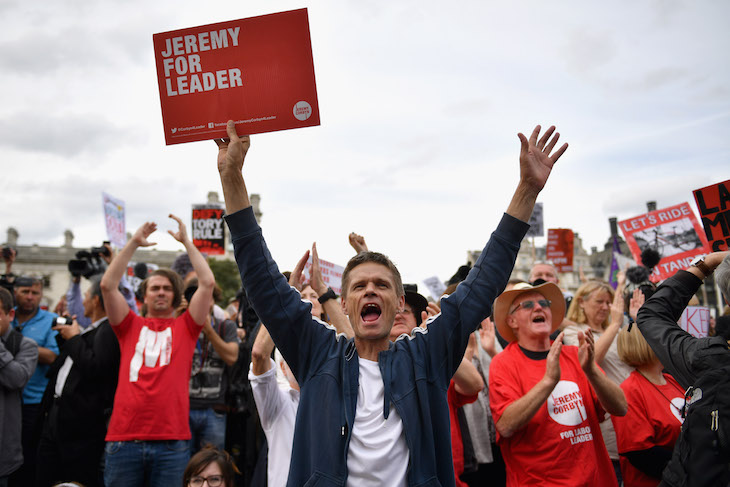The local elections have thrown up a paradox. In theory, Britain has never had more devolution: we have assemblies in Edinburgh and Cardiff, city mayors in England, elected police chiefs and the supposed Northern Powerhouse. So, the run-up to the vote ought to have been dominated by local issues, with a new breed of local political heroes or villains in the media spotlight. Instead, apart from a few door-knocks and the odd leaflet, one could be forgiven for not even realising local elections were being held.
This may be in part because of the sad decline of the local press and the dearth of reporters to cover the elections. But it is also because of the equally sad decline in the number of political volunteers willing to campaign, especially for the Tories. Local elections, even more so than general elections, rely on small armies of volunteers to knock on doors, canvass opinions and encourage voters that local issues really do matter. The Conservative party, according to the House of Commons Library,is down to 124,000 members. When Lynton Crosby was running Tory campaigns, he pointed out that most Tory members could not be relied upon to hit the streets because they were having their afternoon nap.
On the Labour side, it is an altogether different story. Membership has rapidly expanded in recent years — inspired by Jeremy Corbyn — and now sits at 552,000. Moreover, the party has the advantage of an internal movement: Momentum. Originally set up with the express purpose of motivating grassroots supporters during Corbyn’s first leadership election campaign, Momentum has become a driving force behind the entire Labour movement. It has 40,000 members of its own and has been called many things — including a ‘neo-fascist’ organisation by the new Home Secretary, Sajid Javid. It stands accused of bullying moderate candidates in order to force them to step aside in favour of left-wing candidates, and of heckling Labour MP Ruth Smeeth when she arrived at the party’s inquiry into anti-Semitism within the party.
Yet the right makes a great mistake in believing that Momentum can be defined by the worst behaviour of unruly members. The left has found new and effective ways of engaging people in politics. Above all, it has succeeded in mobilising a generation of young voters which the main parties had previously (and almost contemptuously) dismissed as apathetic.
So it is wrong to dismiss Momentum’s masses as a bunch of tired, unreconstructed Trots. It would be convenient for the Conservatives if they were, but that is not how they come across to a large proportion of ordinary voters. Some of the ideas they espouse — such as renationalising the railways — are shared by a majority of Conservative supporters. On the issue of housing they offer hope where the government has been able to offer none. And what’s more, they are there, on the ground, speaking to voters. Momentum maintains a website, My Nearest Marginal, which rapidly directs volunteers, and organises lift-shares, to where they are most needed. Its videos, spread via social media, brim with energy and optimism.
The Scottish National Party has demonstrated the devastating power of putting ordinary people on the streets to talk to ordinary voters — in direct contrast with the increasingly artificial staged rallies still favoured by the Conservatives at the last election. In France, Emmanuel Macron had similar success with En Marche, the movement he founded 14 months before his election campaign, which propelled him to victory in the presidential elections last May.
Over the past generation, politics has become too centralised, too ‘professional’. The debacle of last year’s Conservative general election campaign saw Conservatism reduced to a paean to its leader: the ‘strong-and-stable’ slogan backfired as the course of the campaign undermined the message. It might be possible to win using exhaustively tested but nauseatingly bland slogans, but it is never going to make for a healthy political party. The Conservatives have much to learn from Labour and the SNP. Momentum’s message is so much more powerful because it arrives via people who seem trustworthy and normal, rather than corporate and bland.
It is an irony that, under David Cameron, who adopted ‘localism’ as one of his big ideas, local Conservative branches became hollow. Membership halved, though it was a wonder it did not fall even further, given the contempt which was heaped on the ‘swivel-eyed loons’ of local parties by the party elite. With a few honourable exceptions, such as Andy Street, elected Mayor of the West Midlands last year, Conservatives have come to treat local politics as a breeding ground for Westminster careers, not as a worthwhile occupation in itself.
The consequence is that the Conservatives no longer have the members to challenge Momentum’s eager volunteers. What the party badly needs is a Momentum of its own: putting together people who can speak up for centre-right ideas in every neighbourhood and on every street. Local government and local services ought to be the place to start. If the Conservatives can show no enthusiasm for running a town, it is hard to see why anyone should want to trust them to run the country.






Comments